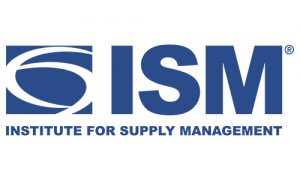Supply Executives with an Opinion See Tax Reform as a Step in the Right Direction
 On December 22, 2017, President Donald Trump signed into law the Tax Cuts and Jobs Act of 2017
On December 22, 2017, President Donald Trump signed into law the Tax Cuts and Jobs Act of 2017
(TCJA). Called the “biggest tax reform in a generation” by supporters, the TCJA changes the income tax code for individuals and corporations. A goal of this legislation is to accelerate the pace of economic growth in the U.S. Since this legislation was highly anticipated and its various iterations closely studied by many organizations, some companies managed to implement changes to policy and practice immediately.
On January 25, 2018, Institute for Supply Management® (ISM®) opened a special survey that asked members of the Manufacturing and Non-Manufacturing Business Survey Committees to (1) report on their organizations’ familiarity with and activity generated by the law and (2) assess how the new tax code might impact their businesses.
Nearly two-thirds (65 percent) of responding supply executives report that their finance and executive leadership is familiar with the TCJA. They also report that a majority (50 percent) of supply management leadership is familiar with the law. Among respondents with an opinion, those expecting a positive change regarding selected organizational, strategic, and tactical considerations far outnumber those expecting a negative change.
Among the comments from supply executives in the manufacturing sector on what the TCJA means to their businesses:
- “The company has increased its 401(k) match by one percentage point, specifically due to the TCJA.”
- “Expect an increase in material costs and pressure on inflation. Overall, the new tax laws are
expected to lead to an increase in revenues, demand for our products, and profit and growth for the business.” - “(Changes in) the amount of debt interest that can be deducted for tax purposes will have a direct impact on our business.”
- “Return on initial investment increased, so our board can approve expansion plans quicker, hopefully in 2018.”
- “It will increase our business sales and revenue. It gives us the ability to increase the company
infrastructure and research and development (R&D) spending. Overall, it shouldn’t make us more competitive in the short term but does give us a long-term advantage for investments, which should lead to a more competitive company.” - “It will result in (significant dollars added) to our bottom line. We do not know what we will do with this yet.”
- “Our business requires enormous capital investment. With this tax reform, future capital investment will be more favorably received.”
- “The TCJA is allowing us to invest in our organization a bit more aggressively, which will in turn create more jobs locally. And with the increased requirements for raw materials based on the plant expansion, we should have a fairly positive affect on the economy.”
- “We believe money will be reinvested in businesses, and individuals will consume more products and services, increasing our revenue and net income. The supply-demand curves are already changing, which will drive commodity price increases. The increase in demand of products will increase pricing for products. Finding talent will be a significant challenge going forward. Our company is already looking at our salary competitiveness and recruiting activities to maintain talent to support the business.”
- “This bill positively impacted our company’s overall plans. Merger and acquisition (M&A)
considerations in 2017 that were questionable due to unknowns were approved for 2018 based on (the TCJA’s) passage.”











